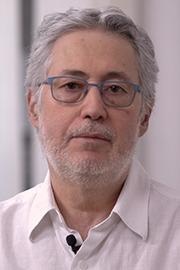We speak with PlanetWatch, an organization taking a citizen science approach to clean air in the hopes of decentralizing environmental monitoring services. We discuss their current and future projects across the globe, the PlanetWatchers community building their global network of sensor data, as well as the blockchain system that underpins the organization.
Could you introduce yourself and your role at PlanetWatch?
My name is Claudio Parrinello, and I am the CEO and Cofounder of PlanetWatch, which I began at the end of 2019, a few months before the pandemic began. Prior to this, I held leadership roles with the physics research organization CERN in Switzerland for several years, followed by several tech start-ups.
While in these roles, I recognized how blockchain technology could be used to tackle environmental challenges by using a "Citizen Science" approach, through decentralizing the whole process. That's how the concept of PlanetWatch was born.
What is PlanetWatch, and what environmental monitoring services do you provide?
PlanetWatch is building a community-driven global air quality monitoring network, harnessing local authorities and individuals to help deploy the network and ultimately reduce air pollution. While other air quality monitoring systems rely on data interpolation, the high density of our network enables hyperlocal, near real-time air quality information. This enables both policymakers and individuals to take targeted action to improve the quality of the air we breathe.

© Maridav/Shutterstock.com
Part of PlanetWatch's company aims is to build a global network of air quality sensors and 'PlanetWatchers'. How important is global collaboration in facilitating enhanced environmental monitoring, and what benefits does this network bring to PlanetWatch in particular?
First of all, air pollution is a global issue that transcends national borders. Decarbonization, reducing greenhouse gases and air particulates, and the green transition need to take place on a global scale if we are to safeguard the future of our planet.
Secondly, the global aspect of air quality monitoring can help people and organizations worldwide feel empowered and part of a bigger movement. This can express itself in communities around the world, learning from each other and sharing ideas for improving air quality.
PlanetWatchers, the members of this global network and global community, are an invaluable asset, allowing us to take a macroscopic view of how air pollution can be tackled worldwide and ultimately drive change. Last but not least, community-driven network deployment is very fast and cost-effective.
Many scientific sectors are undergoing a process of digitalization, such as employing machine learning and artificial intelligence to speed up analysis. What impact is this movement having on environmental monitoring, and how can it help to enhance relevant sensors?
The PlanetWatch network relies on collecting and analyzing large amounts of data, so naturally, increased digitalization and artificial intelligence are a big part of our model.
We are developing algorithms that can detect correlations between pollution and industrial activity, for example, making it easier to detect pollution hotspots and take targeted action to improve air quality on a local scale.
We have seen different data systems integrated into sensor technologies, such as the rise of the Internet of Things. PlanetWatch's data storage involves a blockchain system named Algorand. What is this, and what is the significance of having a decentralized system for sensor data analysis?
The Algorand blockchain is highly secure and scalable due to its pure proof-of-stake protocol. It can handle thousands of transactions per second at minimal transaction fees, making it an ideal technology for a large monitoring network like PlanetWatch. Importantly, Algorand is also a carbon-negative blockchain and has a reputation as a green solution.
As for decentralization, it goes hand in hand with the concept of citizen science. A decentralized ledger provides the necessary transparency and trust to ensure that every user is an equal part of our network and can take part in the governance decisions we make as a company.
Further, it gives users the chance to earn rewards in the form of PLANETS tokens that can be used to purchase further products and will soon include items such as air purifiers or, following our partnership with Treedom, the option to plant trees in ecosystem sustainable forests.

© optimarc/Shutterstock.com
PlanetWatch aims to integrate sensor data from devices with varying levels of advancement, from high-end to consumer devices. Why is technology inclusion so important, particularly for air quality monitoring? How might it help to improve air quality in lower-economic countries?
Technological inclusion is not just important; it is vital. Air pollution is an issue that affects us all, and change can only be achieved if citizens across the world are empowered to participate.
Our monitoring network is unique, as we use reliable yet affordable plug & play sensors and reward users for their participation. This way, we can involve as many people around the world as possible, especially those in low-income and developing countries where overly complicated and expensive systems are not suitable, making our network a truly global one.
On-location projects are taking place in Taranto and Milan. Could you provide an update on how these projects are going and any feedback you have received?
So far, we have connected 88 sensors in Milan and Taranto, which have sent a total of over 6.5 million data streams since their installation in late 2020. As some of our earliest projects, these provide us with an excellent blueprint for further large-scale projects.
We are currently establishing a strong presence in several European cities, including Barcelona, Munich, Berlin, Madrid, Brussels, and Budapest. We are also preparing a major sensor deployment in Miami, Florida.
COVID-19 has emphasized the importance of indoor air quality monitoring. How do you expect this sector to grow in the next few years? Are there any trends you predict?
It is true that the pandemic has significantly increased awareness of indoor air quality. The effects of poor ventilation on the transmission of airborne diseases are critical, but other aspects like declining productivity or impacts on mental health are becoming part of the conversation too.
We already supply indoor monitoring sensors to hotels, schools and offices, and I think it is these types of public buildings which will see greater awareness and investment in better air quality over the coming years.
Are there any challenges in sensor technologies that are affecting this development? How could they be overcome?
With a global semiconductor supply crisis in the background, our key challenge is to strike an optimal balance between device cost, ease of use and data quality. Given the importance of air quality data for public health, it is crucial to prove that data are accurate as well as genuine since bad actors might occasionally attempt to send fake data to our platform.
What is your favorite thing about PlanetWatch, and what can we expect to see from the company in the near future?
My favorite thing is the community. It is really inspiring to see people all over the world getting involved in improving the air they breathe and then share experiences on social media and other channels. As we say, PlanetWatch is a network of sensors AND people.
As for the future, our focus is on growing our network by encouraging as many people as possible to get their own sensors. We aim to provide extensive coverage across at least 20 large cities worldwide in 2022. We are partnering increasingly with local authorities and organizations who recognize the need to act against air pollution in their cities.
Most recently, we announced a collaboration with the Mayor of Miami to deploy sensors in the city on a large scale. More partnerships like these will help broaden our global reach while making a real difference for people on the ground and for the environment as a whole.
About Claudio Parrinello
 Claudio started his career as a physics researcher at various academic institutions until 1999, when he set up a consultancy firm near Geneva. In 2005, Claudio joined CERN, the largest physics research center in the world, where he held numerous roles over 6 years, including leading the Knowledge & Technology Transfer unit. After leaving CERN in 2011, Claudio co-founded Terabee, an innovative digital sensing start-up. In 2017, he became CEO of Malta-based NFT company Unico. In 2020, he co-founded PlanetWatch, as the first CERN spin-off in the blockchain arena, where he is currently serving as CEO.
Claudio started his career as a physics researcher at various academic institutions until 1999, when he set up a consultancy firm near Geneva. In 2005, Claudio joined CERN, the largest physics research center in the world, where he held numerous roles over 6 years, including leading the Knowledge & Technology Transfer unit. After leaving CERN in 2011, Claudio co-founded Terabee, an innovative digital sensing start-up. In 2017, he became CEO of Malta-based NFT company Unico. In 2020, he co-founded PlanetWatch, as the first CERN spin-off in the blockchain arena, where he is currently serving as CEO.
Disclaimer: The views expressed here are those of the interviewee and do not necessarily represent the views of AZoM.com Limited (T/A) AZoNetwork, the owner and operator of this website. This disclaimer forms part of the Terms and Conditions of use of this website.